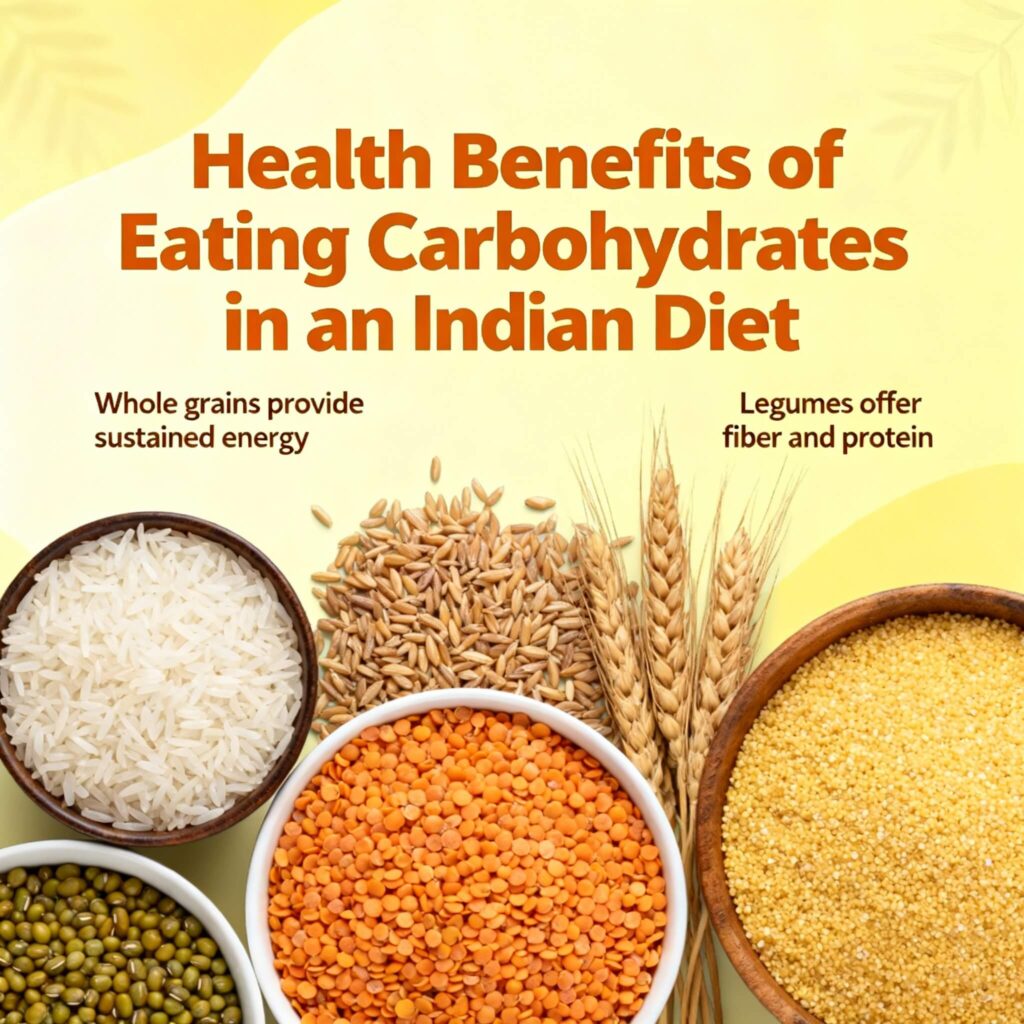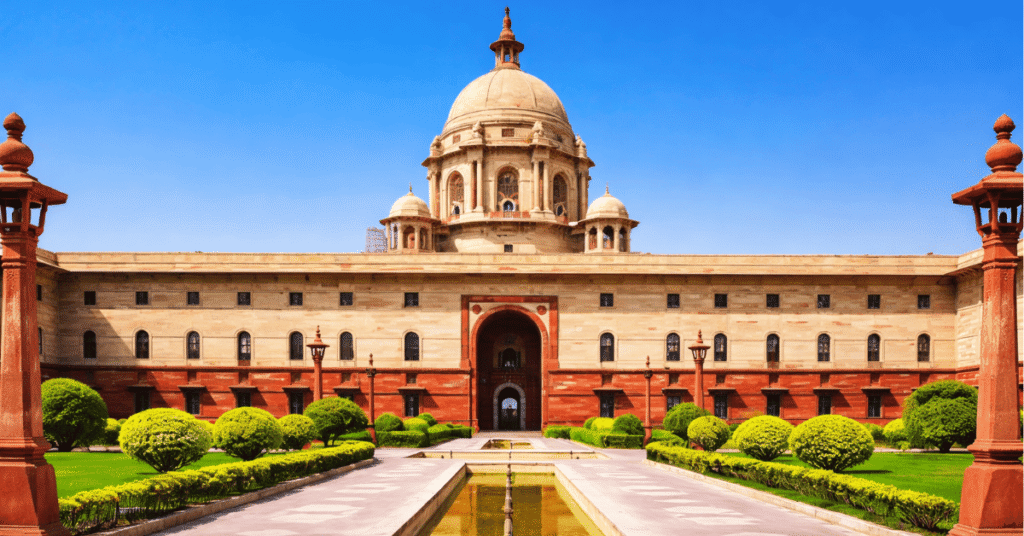Carbs get a bad rep, don’t they? Like you want to blame carbs for every weight gain or energy crash. But hang on a sec—carbs are actually your body’s main fuel. Indian food is full of carbs—roti, rice, dosas—because they work, giving you energy and mood boost. You just gotta know how to enjoy them smartly.
Why You Actually Need Carbs
Your body converts carbs into glucose—that’s blood sugar. And glucose? It’s basically your fuel. Without enough carbs, you’ll feel drained and slow. That’s no good if you’re chasing deadlines or chasing kids around. Your brain especially loves glucose—it runs on it. Cut carbs too much, and you get foggy, forgetful, just flat out tired.
In India, carbs are part of culture and daily fuel. Think wholesome dal chawal, chapati with sabzi—simple, energizing meals passed down generations. But not all carbs are the same.
Different Types of Carbs in Indian Food
- Complex carbs: Found in whole grains like brown rice, bajra, jowar, whole wheat, and legumes (dal, rajma). These break down slowly, giving you steady energy and fiber to keep digestion smooth.
- Simple carbs: White rice, maida (refined flour), sugar, sweets. These spike blood sugar fast and can lead to energy dips.
Choosing complex carbs keeps you fuller longer, avoids sudden crashes, and helps control appetite and weight.
How Carbs Support Your Health
- Energy boost: You’ll feel active and ready, not sluggish.
- Brain function: Carbs improve concentration, memory, and mood.
- Gut health: Fiber-rich carbs help digestion and prevent constipation.
- Mood stability: Serotonin, the happiness hormone, needs carbs to stay balanced.
Balancing Carbs the Indian Way
Look, Indian meals taste best with carbs. You don’t have to ditch them. Instead:
- Swap white rice for brown or mixed grains.
- Add more lentils and beans to get fiber and protein.
- Use millet rotis for variety and nutrition.
- Pair carbs with veggies and proteins to balance blood sugar and fullness.
Real Talk: How This Works Day to Day
Start your morning with a bowl of upma made from semolina and veggies—not just plain paratha. Lunch with brown rice and dal instead of white rice and subzi with ghee. Dinner can be bajra roti with spinach and paneer. Your body gets slow-burning energy, you avoid food comas, and feel lighter.
You can also read about – Top 10 High Carb Foods in India & Low-Carb Indian Foods to Balance Your Diet
My Two Cents
I’ve seen people ditch carbs completely and crash hard. That’s no fun. It’s about smart carbs, Indian style. We’re lucky to have so many whole grain and legume options in our kitchen. Embrace them. Your energy, mood, and digestion will all improve.
Quick Tips to Boost Carb Quality
- Always include dals or legumes.
- Choose whole grains over refined.
- Add fresh veggies with every meal.
- Avoid sugary sweets daily—save sweets for celebrations!
- Drink water, eat slowly, listen to your hunger signals.
Takeaway: Carbs Are Your Friends, Not Foes
Don’t fear carbs. Indian food is built on them for good reason. Pick the right ones, eat a balanced meal, and you’ll power through your day feeling happier, fuller, and healthier.
Try switching one meal a day to whole grains this week. See how you feel. Energy up. Mood steady. Digestion happy. Carbs done right can change your life—one roti at a time.
Frequently Asked Questions (FAQ)
Q1: Are carbohydrates unhealthy?
A: Not at all. Carbohydrates are your body’s primary energy source. The key is to pick the right kinds — complex, whole-grain, fiber-rich carbs — rather than refined or sugary ones.
Q2: What are the best carbohydrate sources in an Indian diet?
A: Some excellent sources include whole wheat (rotis), millets (bajra, jowar, ragi), brown rice, lentils (dal), beans, oats, and vegetables like sweet potato and corn.
Q3: How do carbohydrates benefit digestion and gut health?
A: Many carbohydrate-rich foods (whole grains, legumes, vegetables) contain fiber, which supports healthy digestion, promotes regular bowel movements, and feeds beneficial gut bacteria.
Q4: Should I cut carbs for weight loss?
A: Extreme carb cutting is usually not necessary. Instead, replace refined carbs with whole, fiber-rich ones, moderate portions, and maintain a calorie deficit if weight loss is the goal. Carbs in moderation + quality choices can support sustainable weight management.







